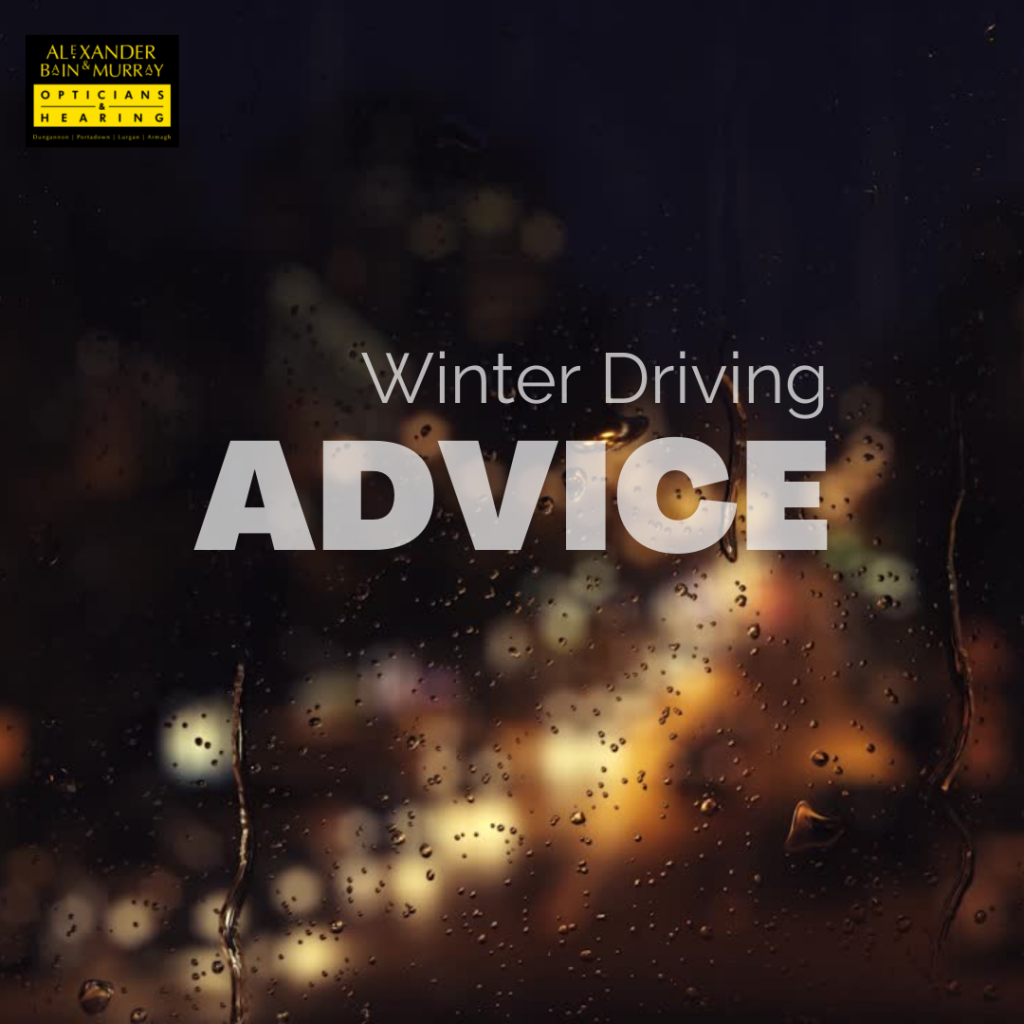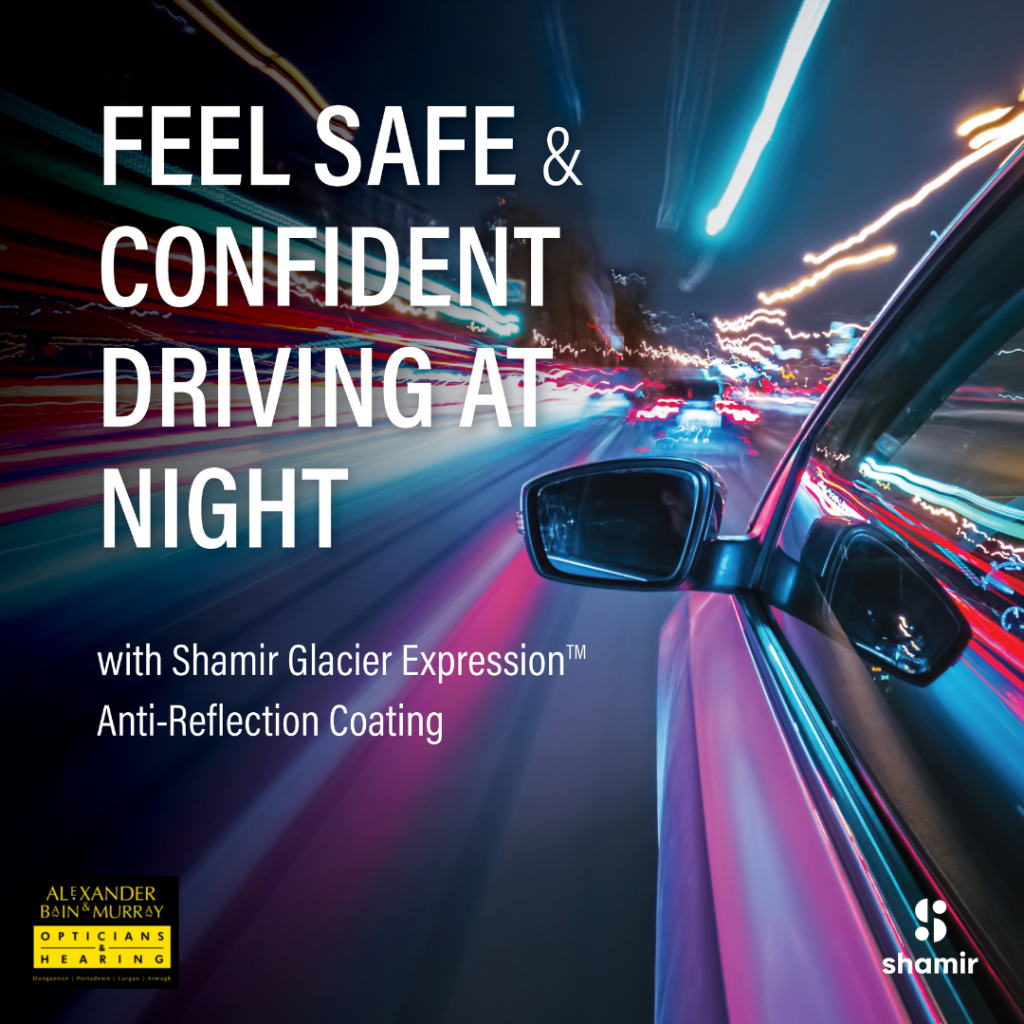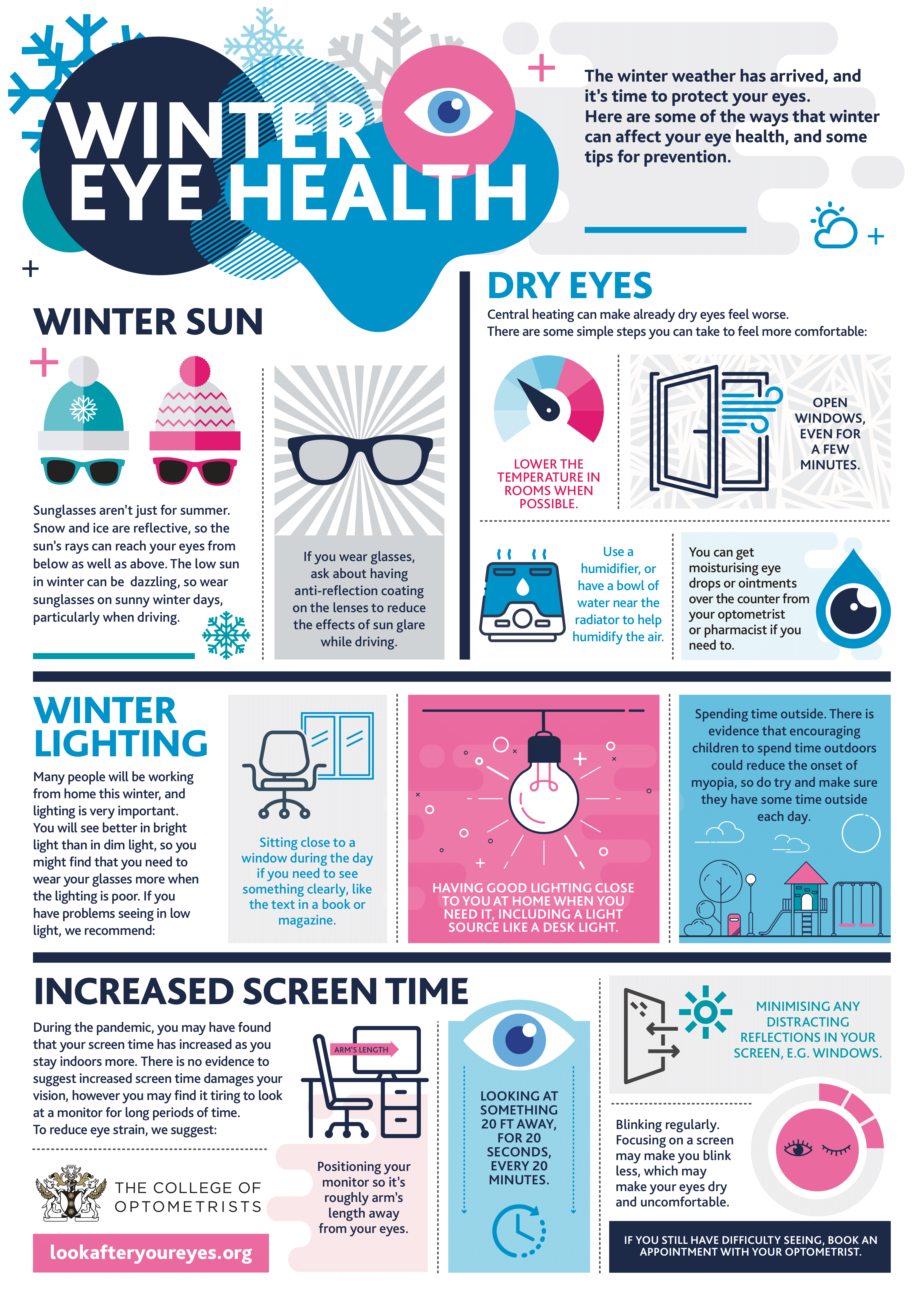Driving Advice in Autumn and Winter
Driving Advice in Autumn and Winter
Autumn and winter can represent a challenge for drivers because of adverse weather conditions and having to spend more time on the roads in darkness especially after the clocks go back at the end of October.
It’s important you give yourself the best possible chance to avoid the dangers of winter driving by following these winter driving tips:

Have regular eye examinations, as recommended your optometrist or sooner if you are having any new concerns. This will identify changes in your vision and keep your prescription up-to-date.
Keep your windscreen and wing mirrors clean and clear.
Ensure your wipers are working effectively and keep an ice scraper in the car.
Keep your headlights clean and properly adjusted. Headlights aimed too low or high can affect your view of the road. Incorrect use of headlights and fog lights can affect other road users
Look away from headlights. Looking directly at oncoming headlights can leave you dazzled afterwards. Look at the patch of light the headlight makes rather than the headlight directly. Drive cautiously until the dazzling effects have worn off.
Even if you don’t wear distance glasses all the time, they will often help when driving in the dark. Having an anti-reflection coating like helps to improve contrast and reduce dazzle.
If you’re finding low-lying sun in the winter difficult, use of prescription sunglasses can help. Polarizing sunglasses reduce reflected glare from wet roads and snow. Use the sun-visor.
Keep your spectacle and sunglass lenses clean and replace scratched lenses.
Dim the dashboard lights. Bright interior lighting will hinder your vision.
Don’t drive when tired. Driving when tired is a contributing factor in a fifth of UK road accidents. Ensure you are well rested and try to avoid driving between midnight and 6am.


Keep your eyes moving so that you stay alert and your eyes refresh, try not to stare and a single point in the distance.
Driving with increased circulation of air from air vents and heating can cause eyes to become dry, irritated and vision to become variable. To combat the effects of dry eye you can use eye drops but you should make sure you stay hydrated, increase your omega-3 intake and adjust the vents to blow air away from your face.
We have a new coating for your glasses from our Specialist Lens Supplier, Shamir
Shamir Glacier Expression™ Anti-Reflection coating: This new coating provides an astonishing level of clarity, devoid of disturbing reflections, for improved quality of vision, improved contrast sensitivity and light transmittance. The sharper and more detailed your vision, the faster your response. Superior contrast sensitivity translates to fast reaction times in daily activities, and can ultimately even improve your vision while driving, especially at night.
For more information contact any of our practices and our team will be delighted to help you with your queries.
By Conor McErlean



Eye Health Tips As Winter Sets In
As the winter deepens and we have spent more and more time indoors usually looking…

Fireworks and Eye Safety
Fireworks and Eye Safety Every year, in the UK, around 300 people suffer serious eye…
